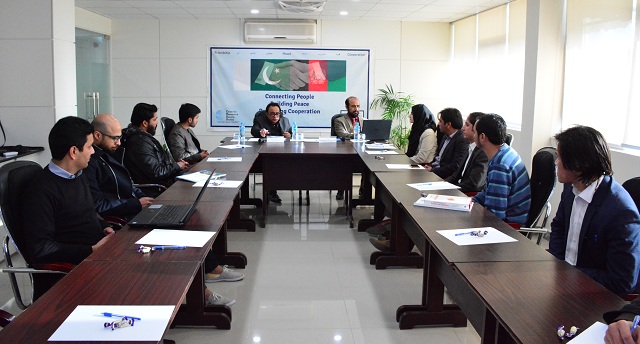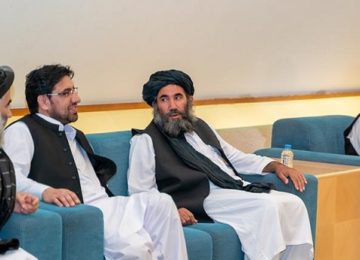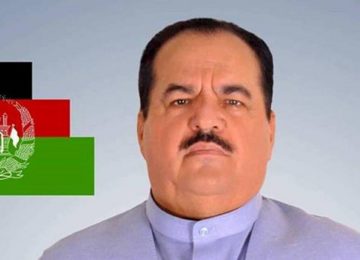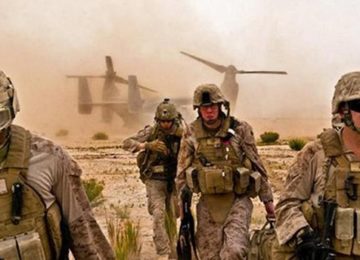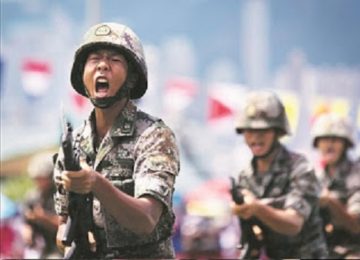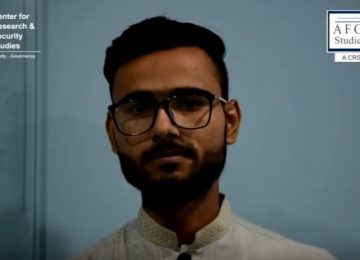January 25, 2019.
US and Afghan Taliban, it seems to be, will reach an agreement soon. Though, later, Afghan Taliban will have to sit with the Afghan government to materialize the intra-Afghan agreement. Pakistan is doing everything in its capacity to set the table between the Taliban and the Afghan government, as Pakistan believes in an Afghan-led and Afghan-owned peace process for lasting peace and development. Whatever the flaws may be in the electoral process, Afghan government represents the Afghan people; it is the only voice they have. Hence, not to take Afghan government on board is out of question, stated Dr. Manzoor Khan Afridi, while speaking at Afghan Studies Center’s 20th Pak-Afghan Youth Dialogue in Islamabad on January 24, 2019. He was speaking on the theme, “Threat Matrix in Afghanistan: Implications for Central Asia & Pakistan.” Participants included Pakistani and Afghan youth enrolled in universities in Pakistan.
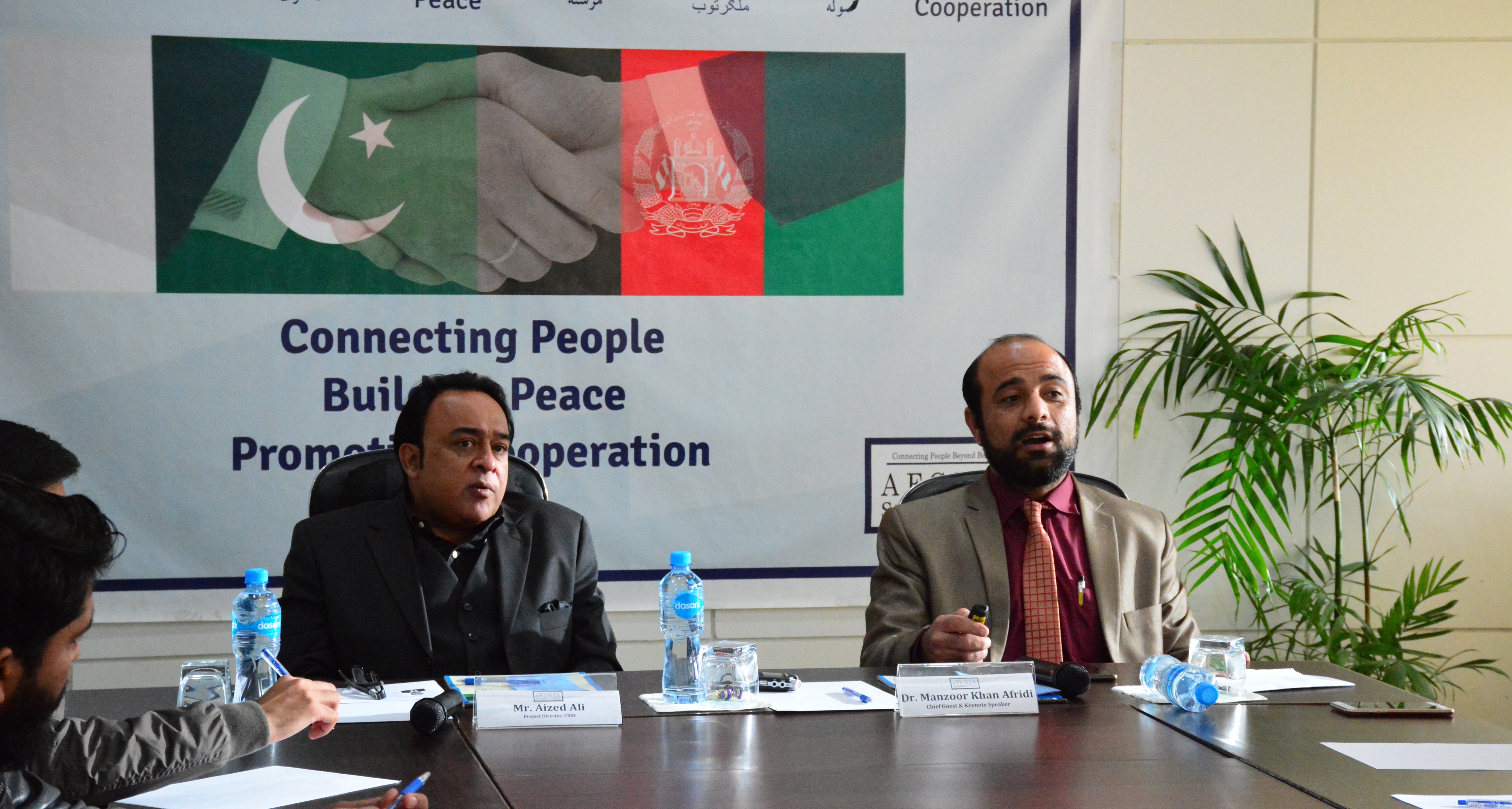
Afghanistan is passing through the toughest phase in recent decades. Last year was the bloodiest; yet for the first time in a very long time, there also lies a window of opportunity for making history by harnessing peace through talks. Dr. Afridi believed that after US and Afghan Taliban reach an agreement, Taliban will be asked to give up arms and become part of the political process along with Afghan government. He was very optimistic that this time, there may be some tangible gains in terms of achieving peace.
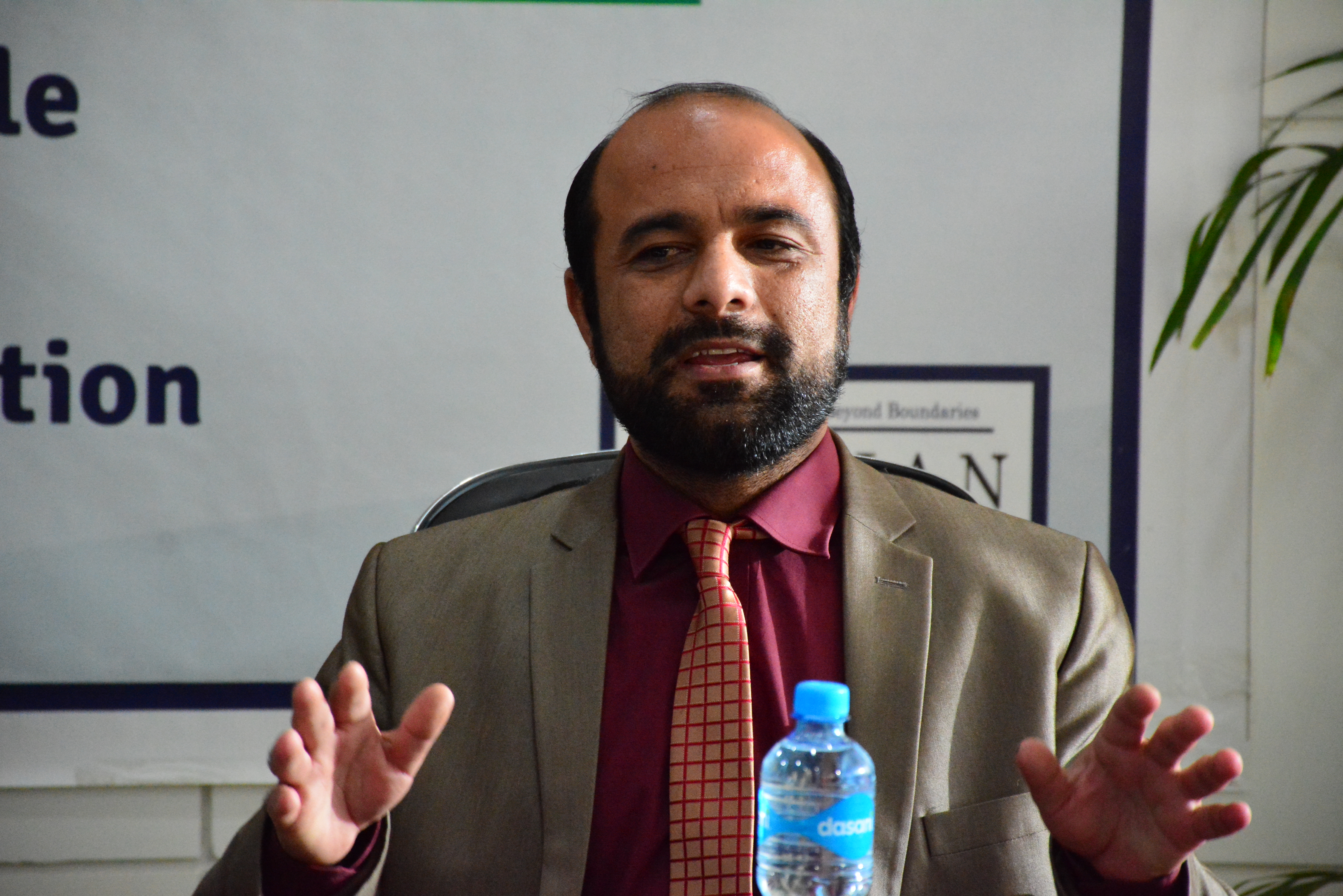
Though, he cautioned about the perpetuating threat matrix within Afghanistan which poses challenges to the country’s stability – involving firstly militancy by the Taliban, Islamic State – Khorasan Province (IS-KP), drug trafficking, trust deficit between Pakistan and Afghanistan, proxy wars, and limitations of the Afghan National Security Forces (ANSF). Besides, narco-economy is also a significant factor in the perpetuating Afghan conflict as it is the financial life-line for militants. Illegal Afghan Opiate Economy is more than $2.8 billion which is 13% of the Afghanistan’s total GDP. The estimated total worth of Afghan Opium in international market is around $61 billion. This is one of the major funding sources for militancy. Taliban generates $400 million from drug economy. It is pertinent to note that the US has spent over $68 billion on ANSF since 2001. Despite spending such a huge amount of money, results are dismal.
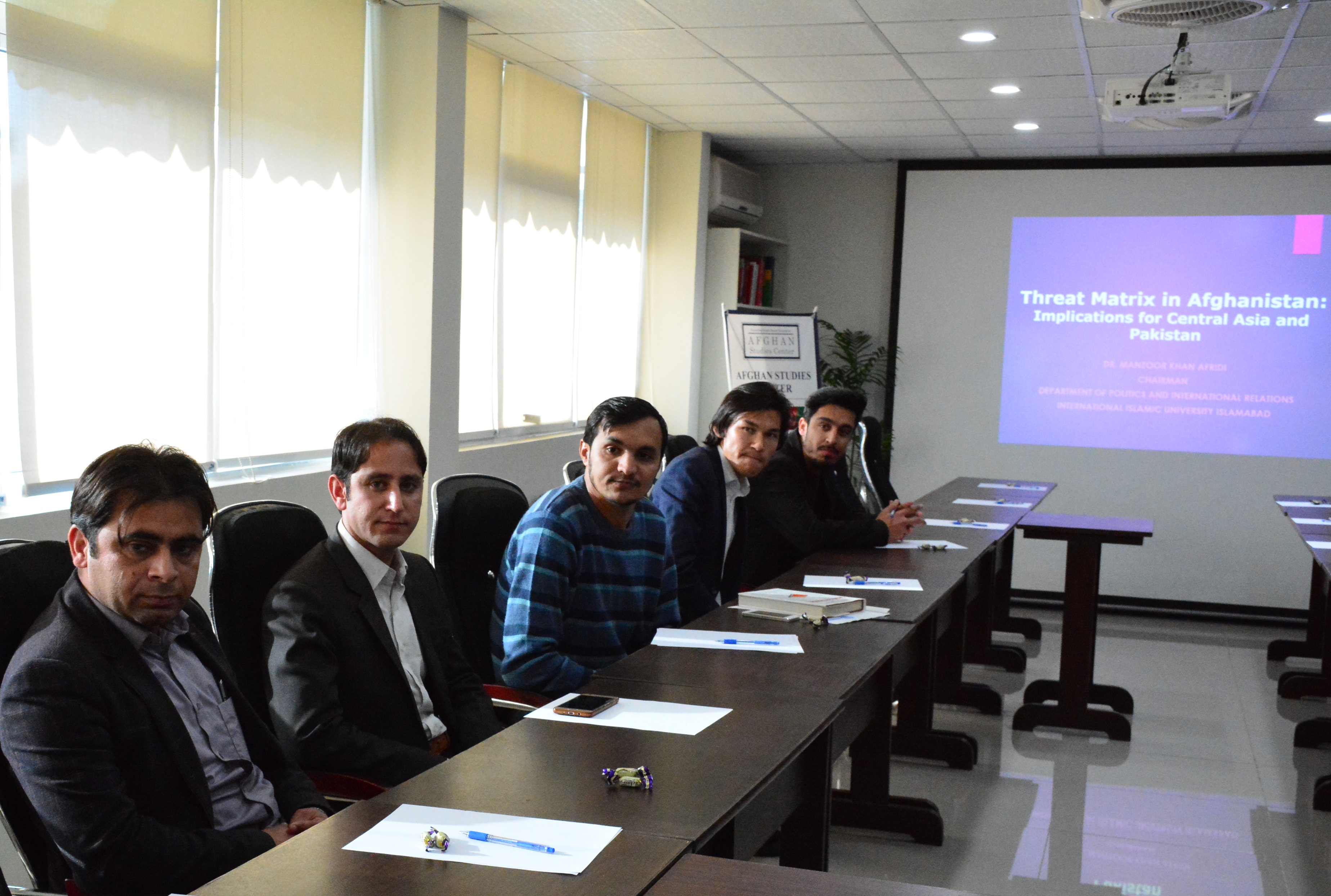
On the other hand, China, in last few years has emerged as a key player to champion peace in Kabul. This is because Afghanistan is the pivot of the Chinese economic game plan – what Beijing is calling the revival of ancient Silk Road through multiple corridors. Hence, stability in Kabul for China has gained key importance as well as for Pakistan and Central Asia as these corridors span over the latter’s geography. Uzbekistan, Turkmenistan, Tajikistan, Pakistan, Iran, and China directly share borders with Afghanistan; thus, these countries are directly associated with what happens in Afghanistan. The impacts of Kabul’s instability on these countries are in terms of economic cost, drug trafficking, rise in crime, influx of refugees and illegal migrants, spillover effects of terrorism, renaissance of the Islamic Movement of Uzbekistan (IMU) and also, emergence of IS-KP in recent years.
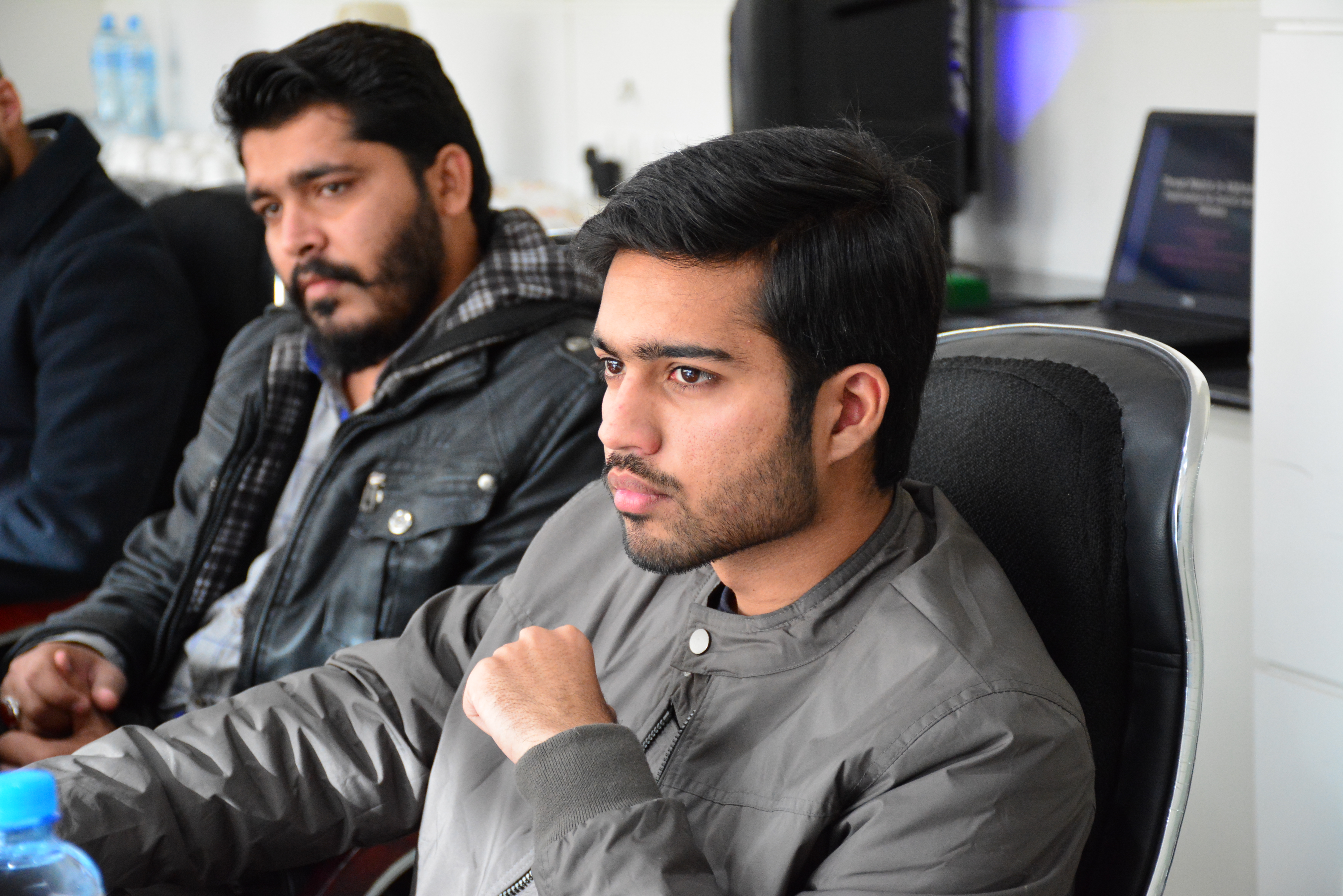
In the Q&A session, participants posed several queries to the chief guest while also sharing their perceptions on the integration of the Taliban in the political process should peace talks succeed, the role of the American envoy Zalmay Khalilzad, the future of extremist groups in the region, regional economic connectivity projects, Pakistan-Afghanistan relations, and so on. As a take-away for the youngsters from Pakistan and Afghanistan, Dr. Afridi recalled a quote from late American President John F. Kennedy, “Mankind must put an end to war before war puts an end to mankind”.
CRSS Project Director Mr. Aized Ali also apprised the participants about the ongoing CRSS Pak-Afghan Track 1.5/II Initiative ‘Beyond Boundaries’ which has so far convened 16 high level meetings between the two Pak-Afghan influencers’ groups, mainly in Kabul and Islamabad, but also in other major cities such as Karachi, Lahore, and Mazar-e-Sharif, to bridge the gulf of mistrust and improve bilateral relations between Pakistan and Afghanistan. He told the participants that the Afghan Studies Center is an off-shoot of the initiative, aimed to provide the youth of both countries a platform to inculcate critical, creative and out of box thinking and to dispassionately interact and exchange ideas as they emerge as future leaders and ambassadors of peace.
At the end, the ASC team nominated Wajiullah from Pakistan as the Pak-Afghan Youth Ambassador for the month of January 2019, who was then presented a shield by the Chief Guest. Project Director Mr. Aized Ali also presented an honorary shield of appreciation to the Chief Guest, Dr. Manzoor Khan Afridi.
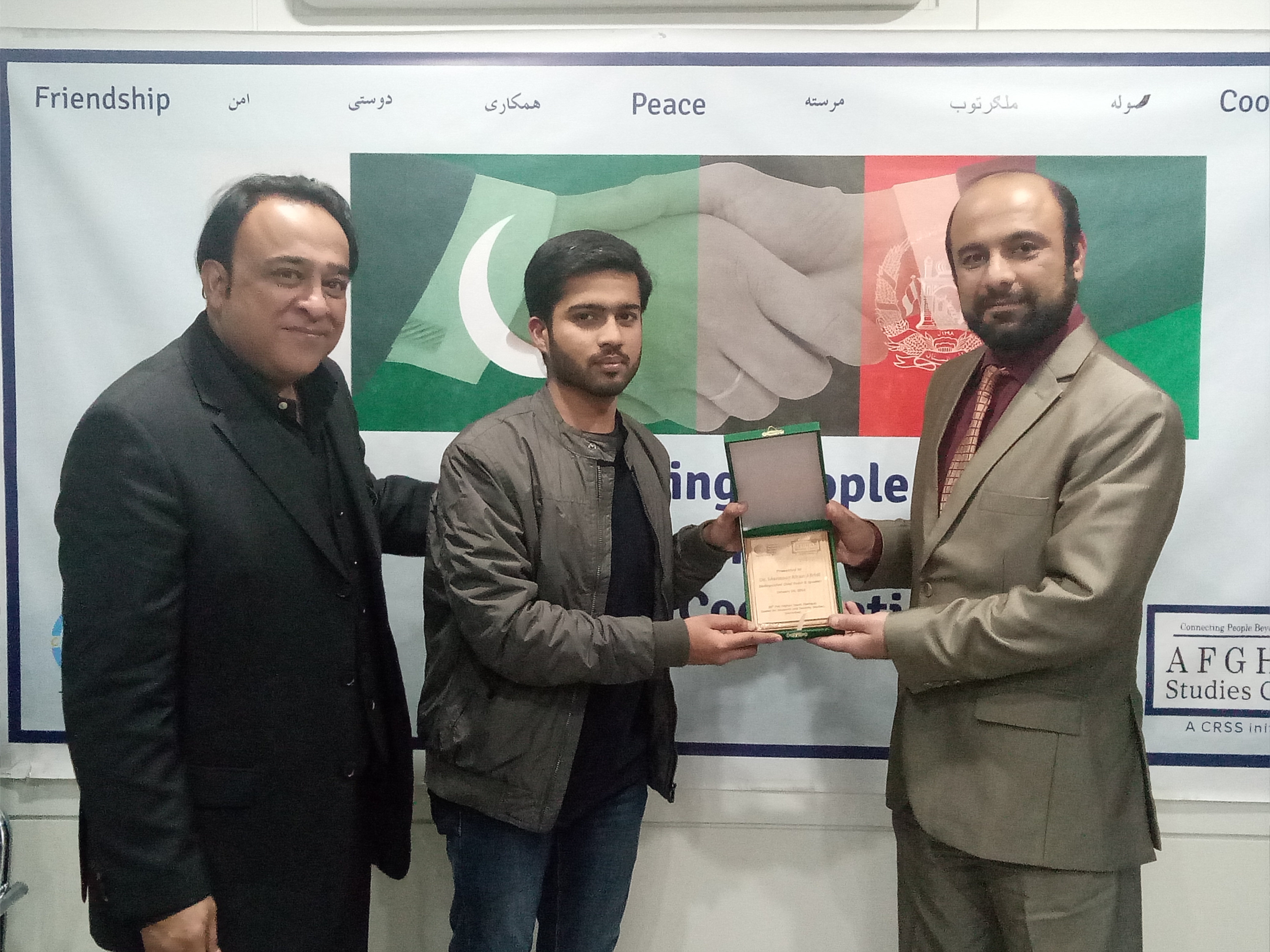
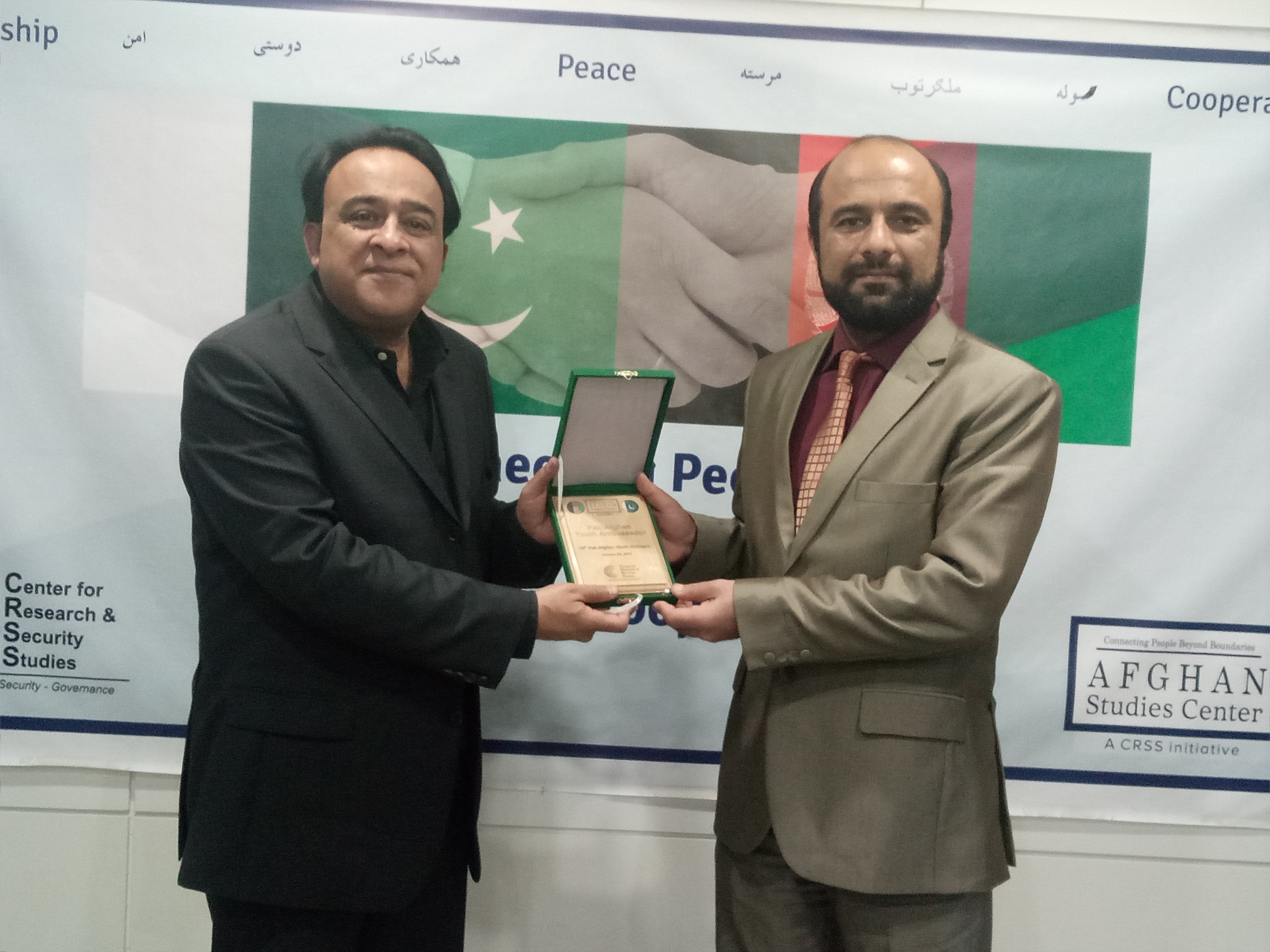
Thereafter, the 20th Pak-Afghan youth dialogue came to a close followed by a group picture. The dialogue was held under the Afghan Studies Center initiative of CRSS which has now an alumni of over 500 Pakistani and Afghan youth. Afghan Studies Center aims at encouraging peace narratives and critical thinking through its monthly Pak-Afghan youth dialogue series, and its quarterly training workshops, which focus on the skill development and capacity building of emerging future leaders from both countries.
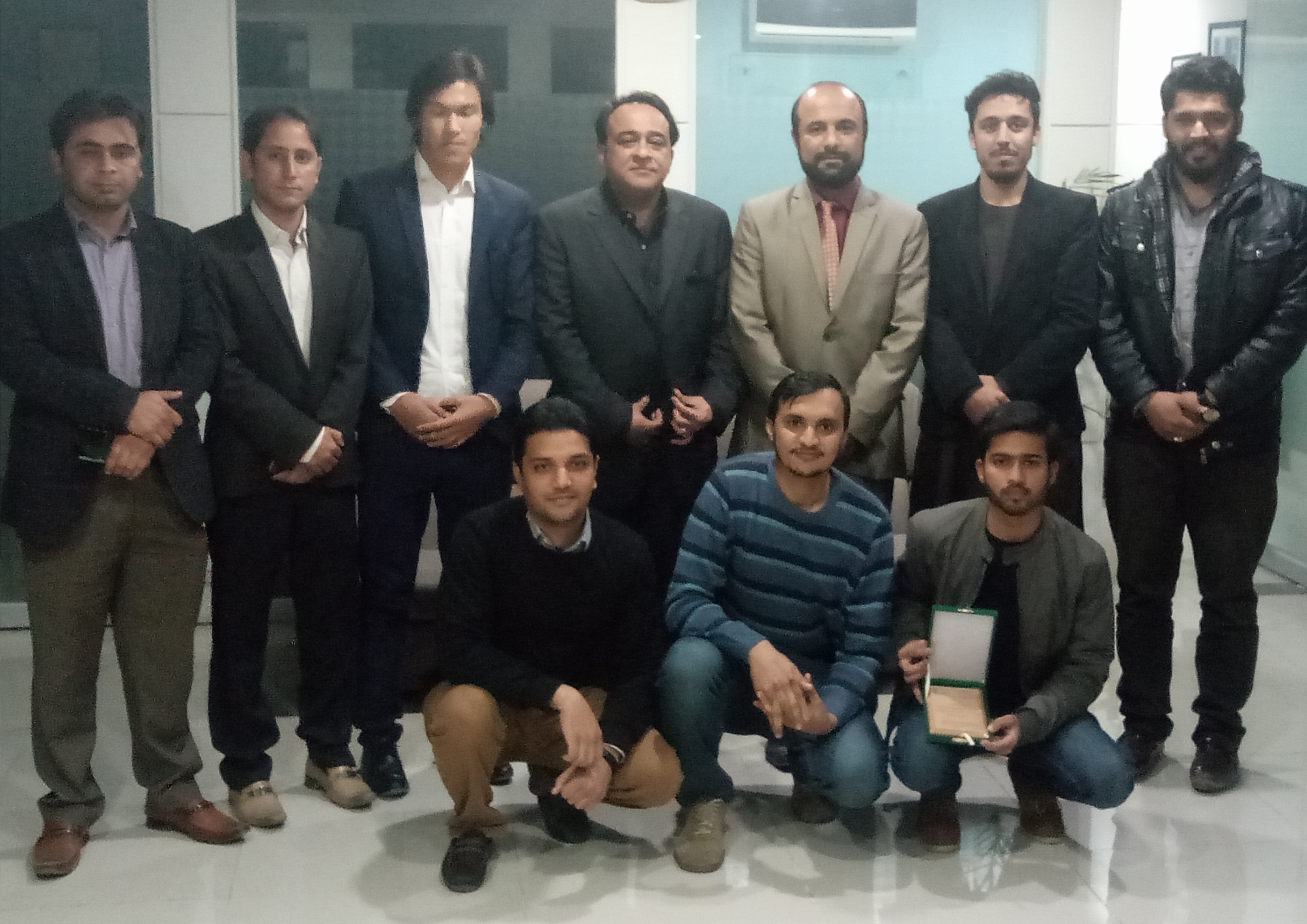
© Center for Research and Security Studies (CRSS) and Afghan Studies Center (ASC), Islamabad.



